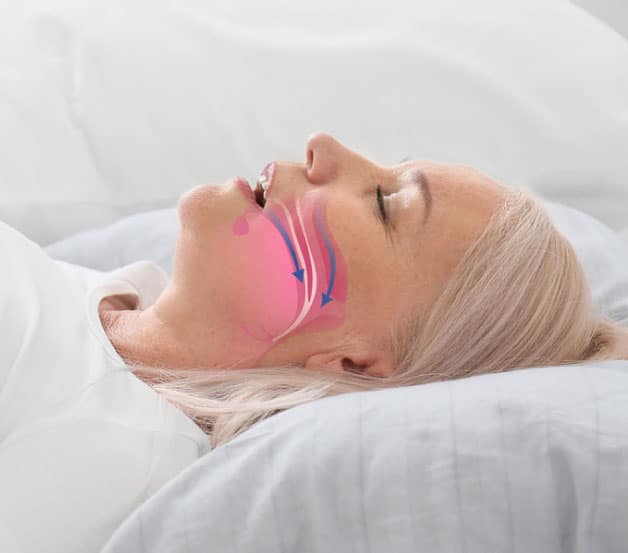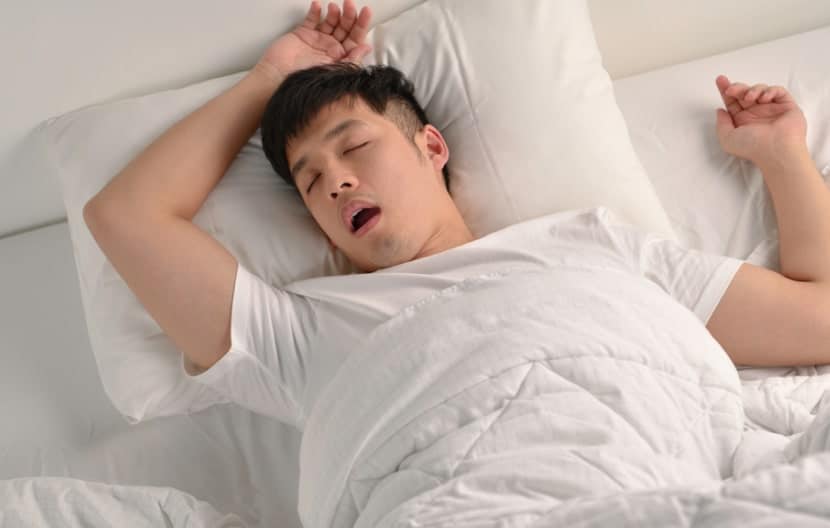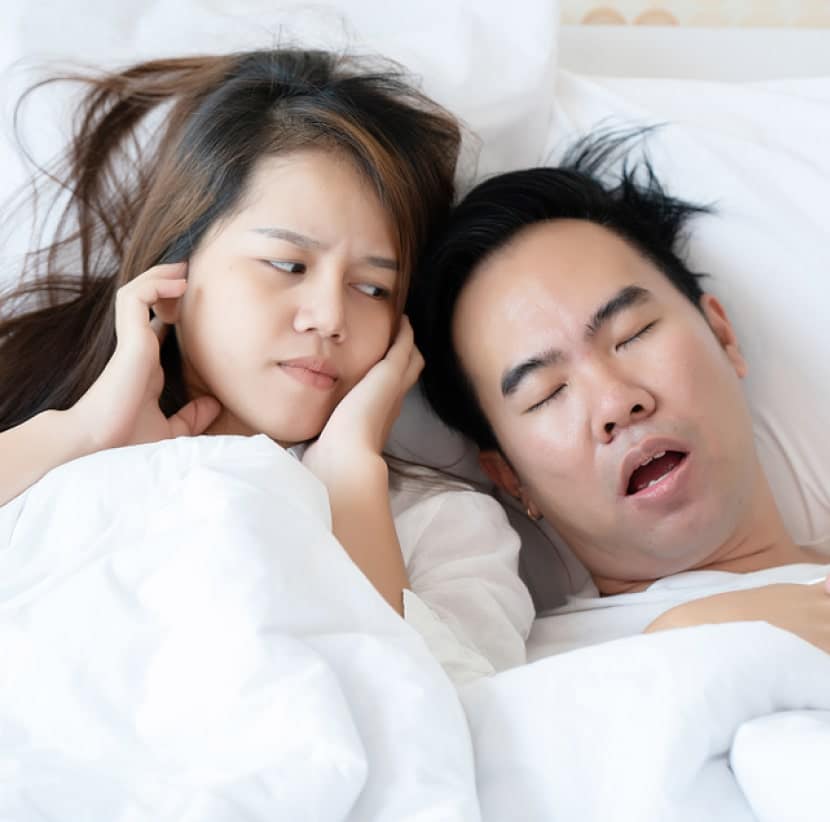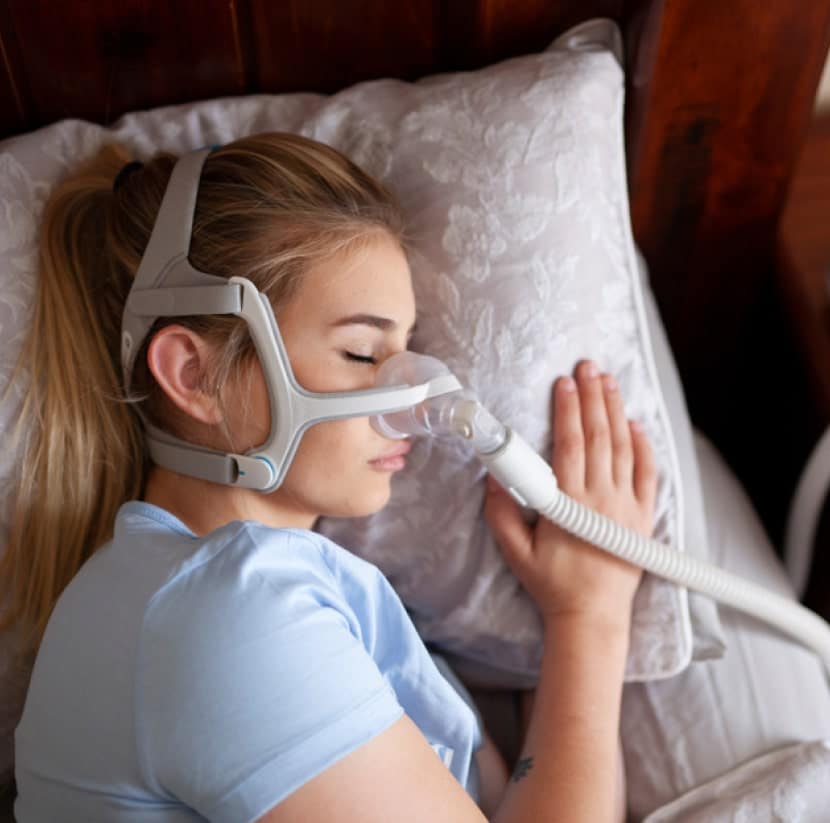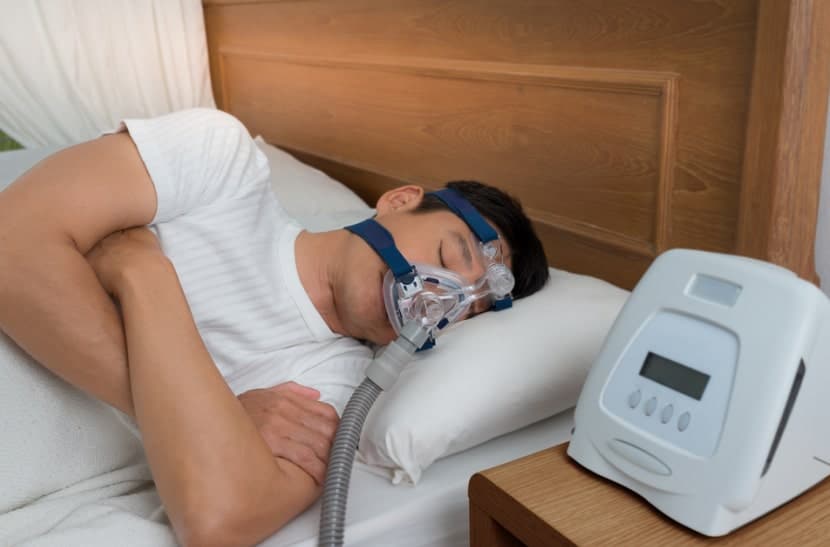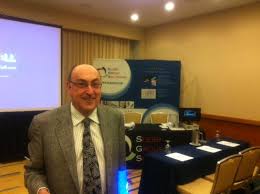Sleep Apnea Treatment
Sleep apnea is a prevalent disorder that affects millions of people, causing interruptions in breathing during sleep.
If left untreated, it can lead to serious health issues. Comprehensive dentistry can be the solution for residents of Windy City seeking sleep apnea treatment in Chicago.
UPLOAD YOUR SMILEOverview of Dentistry to Treat Sleep Apnea
Traditionally, sleep apnea was managed with the use of CPAP machines. However, the dentistry field has evolved to include alternative treatments that are more convenient and comfortable.
One such treatment involves using an oral dental appliance for sleep apnea. These appliances are custom-made by dentists and are designed to keep the airway open during sleep by repositioning the jaw and tongue.
In Chicago, dentists specializing in sleep apnea treatments have the necessary expertise and technology to provide customized oral appliances. These professionals, known as sleep apnea dentists in Chicago, craft these appliances and provide the guidance and follow-up care essential for effective treatment.
Signs and Symptoms of
Sleep Apnea
Before delving into treatment options, it’s important to recognize the signs and symptoms of sleep apnea. Common signs include:

Loud snoring

Gasping for air during sleep

Excessive daytime sleepiness
Other symptoms can include:

Morning headaches

Difficulty concentrating

Irritability and a dry mouth upon waking
It's essential to consult a healthcare professional if you experience these symptoms, as sleep apnea can have long-term health impacts.
Sleep Apnea Treatment Options
Several treatment options are available for those diagnosed with sleep apnea in Chicago. The choice depends on the severity of the condition and personal preference.

Continuous Positive Airway Pressure (CPAP) Machines
This traditional treatment involves wearing a mask over the nose and/or mouth. A machine blows air into the mask to keep the airway open during sleep.

Oral Dental Appliances
As mentioned earlier, these are custom-made by sleep apnea dentists and work by repositioning the jaw to keep the airway open. They are often recommended for patients with mild to moderate sleep apnea and are preferred by many due to their comfort and convenience compared to CPAP machines.

Surgery
In severe cases, or when other treatments are ineffective, surgery might be considered. This can include procedures to remove excess tissue from the throat, repair structural abnormalities, or implant devices stimulating the tongue.

Lifestyle Modifications
Sometimes, simple changes such as losing weight, changing sleeping positions, or avoiding alcohol can alleviate sleep apnea symptoms.
How Soon Can You See Results With
Sleep Apnea Treatment?
The timeframe for seeing results varies depending on the treatment option chosen. CPAP machines may offer immediate relief, while oral dental appliances might take a few weeks for the patient to adjust and notice improvements.
Lifestyle modifications and surgeries require even more time to show significant results. Regular follow-ups with your sleep apnea dentist in Chicago are critical to monitoring the treatment’s progress and making necessary adjustments.
Dentistry and Sleep Medicine
Dr. Barry Freydberg, a 1968 graduate of the University of Illinois College of Dentistry, was a full-time general dentist until recently. He now spends much of his chair-side time practicing dental sleep medicine in Illinois and Arizona. He says, “Practicing Dental Sleep Medicine is a joy. And I can’t wait to share stories and videos of patients who attribute sleep dentists for not just saving their lives but having discovered the source of many of their medical problems when their physicians only treated their illnesses.”
In February 2009, the Chicago Dental Society awarded Dr. Freydberg the Gordon Christensen Lecture Recognition Award for his outstanding teaching contributions over the years. He was also a consultant to the ADA Council on Dental Practice for more than a decade.
FAQ's
Yes, sleep apnea can have a hereditary component. However, lifestyle factors also play a significant role. If a family member has sleep apnea, it may increase the risk for others, but lifestyle changes and treatments can help manage it.
If untreated, sleep apnea can lead to serious health issues like high blood pressure, heart disease, stroke, and fatigue-related accidents. It’s essential to seek treatment to avoid these complications.
Sleeping on your side is often recommended for people with sleep apnea. This position helps keep the airway open and reduces the chance of airway blockages, making nighttime breathing more comfortable.
While there’s no guaranteed natural cure for sleep apnea, lifestyle changes like weight loss, regular exercise, avoiding alcohol before bed, sleeping on your side, and maintaining a consistent sleep schedule can help reduce symptoms. Consulting with a healthcare professional for personalized advice and treatment recommendations is crucial.
Sleep apnea doesn’t directly cause seizures, but it can increase the risk for those already prone to seizures due to conditions like epilepsy. Disrupted oxygen levels and brain activity changes during apnea episodes may trigger seizures in susceptible individuals. Consulting a healthcare professional is crucial for managing both conditions effectively.
Schedule an Appointment With the Best Sleep Apnea Dentists in Chicago
For residents in and around Chicago, seeking effective sleep apnea treatment is crucial for overall health and well-being.
Affinity Dental, renowned for its expertise and state-of-the-art solutions in treating sleep apnea, is your ultimate destination.
Don’t let sleep apnea keep you up at night. Schedule an appointment with Affinity Dental and embark on an uninterrupted, restful sleep journey. Your future self will thank you.

